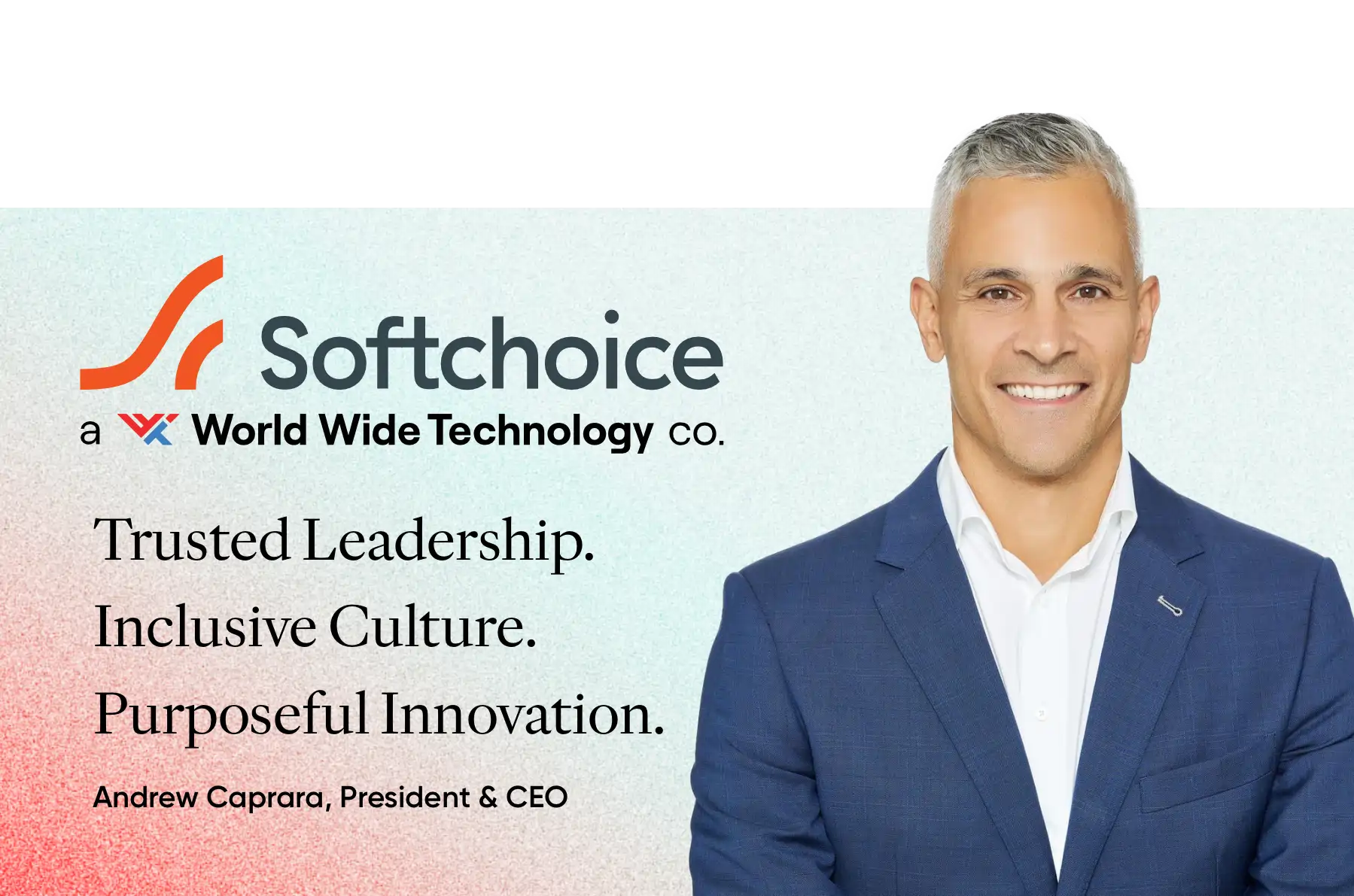
Recruitment, Employer Branding
Key Takeaways:
- Employees Choose Culture Over Pay: Top talent values culture — 92% of employees would switch jobs without a raise for a company known for strong workplace culture.
- Managers Avoid Favouritism at Certified Workplaces: 83.6% of employees at Certified™ companies agree that managers avoid playing favourites, compared to just 45.6% in typical workplaces.
- Fair Profit Sharing Improves Brand Perception: 70.5% of employees at top workplaces believe they receive a fair share of company profits, versus only 34.9% at typical Canadian organizations.
- Trust Boosts Market Performance: Companies with high-trust cultures perform nearly 4x better in the stock market than the average, reinforcing the business value of workplace trust.
In today’s hiring landscape, a recognizable employer brand is no longer a nice-to-have — it’s a competitive necessity. Job seekers want more than a title and a salary. They’re paying attention to how companies treat their people, communicate decisions, and live their values.
One thing stands out across the board: trust. It’s what turns a workplace into a destination. And building a trust-based employer brand requires more than a strong social media presence or a polished careers page. It requires consistency between what’s promised and what’s actually experienced by employees every day.
Why Trust Is the Cornerstone of Employer Brand
A company’s employer brand is shaped by how people inside and outside the organization perceive its culture. While logos and messaging play a part, it’s the real, everyday experiences of employees that form the foundation of trust — or erode it.
Trust influences everything from employee retention to word-of-mouth recruitment. People are more likely to refer others, stay longer, and contribute meaningfully when they believe their company is fair, respectful, and credible. In short, trust doesn’t just make for a better workplace — it defines how your brand is viewed in the market.
It’s also what makes a company stand out to job seekers — sometimes even more than compensation. According to Great Place to Work® Canada’s article, 92% of employees would switch jobs without a pay raise for a company known for exceptional workplace culture. This shows just how influential a trust-based employer brand can be in a competitive job market.
Start With the Employee Experience
No brand story is stronger than the one employees tell.
If your people feel unsupported, excluded, or unsure about where they stand, that experience will eventually make its way to job boards, interviews, and professional networks.
Building a trust-based employer brand starts with listening. This means gathering honest feedback about how employees perceive their workplace. Do they feel seen and heard? Do they trust leadership? Is recognition fair? These questions help identify strengths to build on — and gaps to address.
Use Data, Not Assumptions
Internal perception doesn’t always reflect external reputation. That’s why relying on assumptions or one-off anecdotes is risky. A more reliable approach is to use standardized surveys that assess key areas such as respect, fairness, credibility, pride, and connection among colleagues. These are the core indicators of a healthy, trust-based culture.
Organizations that regularly assess these elements not only gain insight into their current culture, but also identify areas that may affect their employer brand. When paired with benchmarking, they can also see how they compare to others in their industry.
Make Leadership Visible — and Accountable
Trust doesn’t flow from policy documents. It’s built through daily interactions and leadership behaviour. Employees take cues from how leaders respond to uncertainty, how they acknowledge feedback, and whether they follow through on commitments.
This doesn’t mean leaders need to be perfect — but they do need to be clear, consistent, and transparent. When employees feel safe asking questions, when communication is timely and straightforward, and when decisions are explained honestly, trust grows. And as trust grows, so does the strength of your brand in the eyes of potential candidates.
According to research from the Boston Consulting Group, having great managers can reduce attrition by 72% and increase employee motivation by over three times. Leadership quality isn't just a management issue — it’s a core component of how your employer brand is perceived.
Transparency in Communication Builds Credibility
Credibility is one of the most powerful components of trust. If employees don’t understand how decisions are made, or feel like information is withheld, they begin to fill in the blanks themselves — often with assumptions that can harm morale and brand perception.
This is especially true during times of change. Whether you’re navigating a reorganization or responding to external events, being upfront and direct helps reduce confusion and anxiety. Over time, clear communication becomes part of your brand identity, setting you apart from companies that leave people guessing.
Recognition, Fairness, and Growth Matter
Another key to trust is fairness — especially when it comes to recognition and opportunity. Employees notice when their efforts are acknowledged sincerely, when promotions are earned, and when their contributions matter regardless of their role or background.
A trust-based brand is one that treats recognition not as a campaign, but as a habit. It gives employees reasons to feel proud of their work and their company, and it makes those reasons visible. This has a ripple effect on recruitment. Candidates today are looking for signs that their future employer treats people fairly — and that fairness extends beyond top performers or senior roles.
The connection between employee experience and loyalty is well-documented. As noted by McKinsey & Company, employees who report a positive experience are four times more committed and eight times more likely to stay with their organization. These are the kinds of outcomes that turn employer branding from a marketing function into a strategic business priority.
While many companies speak of fairness, the data reveals a deeper gap. Only 45.6% of employees in a typical Canadian workplace agree that managers avoid playing favourites, compared to 83.6% at top Certified workplaces (Great Place To Work® 2021 Global Employee Engagement Study). That difference is a clear signal of how trust is built — or broken — in everyday decision-making.
Fairness also extends to how rewards are distributed. Among employees at top Certified workplaces, 70.5% feel they receive a fair share of the profits their organization makes. In contrast, just 34.9% of employees in the average Canadian workplace feel the same (Great Place To Work® 2021 Global Employee Engagement Study). This disparity not only affects engagement — it shapes how your employer brand is perceived in the broader market.
A high-trust brand also signals long-term business strength. Organizations with strong workplace cultures perform nearly four times better in the stock market compared to others, demonstrating that trust is not just good for morale — it’s good for business.
For a more detailed look at this connection, the High-Trust Business Case Study offers research-backed data on how trust translates into stronger financial results, lower turnover, and greater organizational resilience.
Show, Don’t Just Say
Job seekers can tell when a brand message doesn’t match reality. That's why it's critical to ensure consistency across every platform — from your careers page and job postings to social media and interview processes.
Show real stories of employee experiences. Highlight teams, not just individuals. Use language that reflects how you operate day to day — not just how you want to be perceived. Avoid grand claims that can’t be backed up. Instead, focus on what’s true, what’s consistent, and what makes your workplace genuinely worth joining.
Let Employees Tell the Story
One of the most credible forms of employer branding is employee voice. When people share authentic stories about why they stay, how they grow, or how they’ve been supported through challenges, those stories have a far greater impact than any ad campaign.
Companies that enable — and encourage — employees to share their experiences are often the ones seen as more trustworthy by candidates. It’s not about showcasing perfection; it’s about demonstrating that your workplace cares, listens, and improves.
Keep Evolving With Feedback
Trust is not a one-time achievement — it’s something that needs to be nurtured continuously.
That’s why collecting feedback shouldn’t be a check-box exercise. It should be built into your culture and used to inform real change.
Organizations that demonstrate responsiveness — even in small ways — reinforce the idea that they’re listening. Over time, this kind of consistency strengthens not just internal engagement but external reputation. It shows that your employer brand is not just a campaign — it’s a reflection of who you really are.
Tools & Resources
- Great Place to Work® Certification: Validate your employer brand with Certification — a two-step process that signals a great workplace to top talent and gives you access to promotional and benchmarking tools.
- Trust Index™ Employee Feedback Survey: Measure trust in your organization through a research-backed employee survey that identifies culture strengths and challenges across fairness, respect, credibility, pride, and camaraderie.
- Employer Branding: Turn employee experience into a recruiting advantage. Certified companies gain visibility, credibility, and are more likely to attract high-quality candidates actively seeking meaningful workplaces.
- Leadership Development: Develop high-trust leadership behaviours that drive retention and performance. Our framework helps leaders build credibility, fairness, and respect — all critical to a strong employer brand.
Feedback
We value your feedback! Your insights are crucial to helping us create meaningful content. Did the strategies in this article inspire new ways to build a trust-based employer brand in your organization? Are there specific challenges you'd like us to address? Share your suggestions or ideas with us. Together, we can develop resources that truly make a difference. Have feedback? Fill out this form by clicking here.
Get Certified
Want to know how your people feel about your employer brand and trust in leadership? Get Certified today and learn the answer to this question and gain many more insights along the way.






